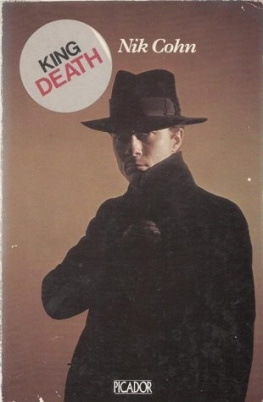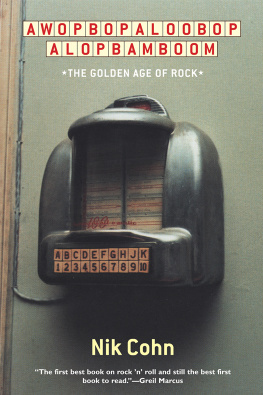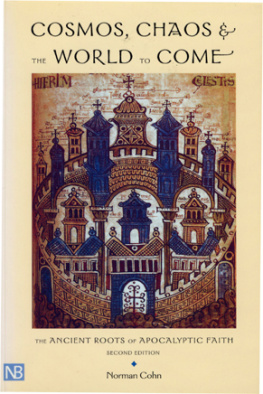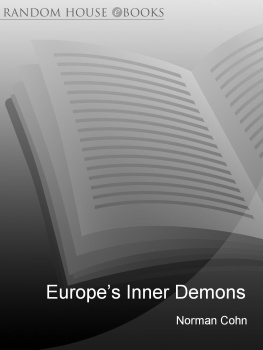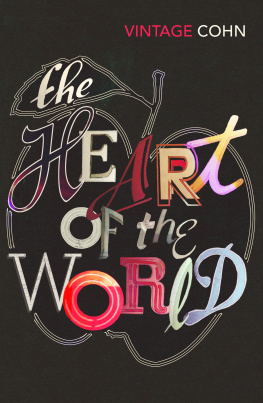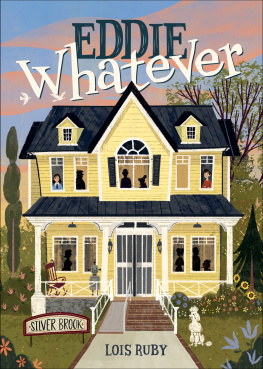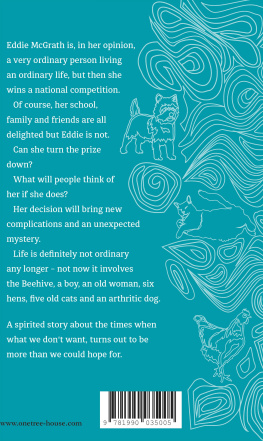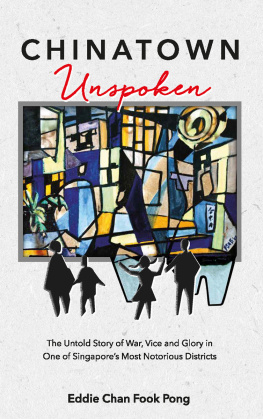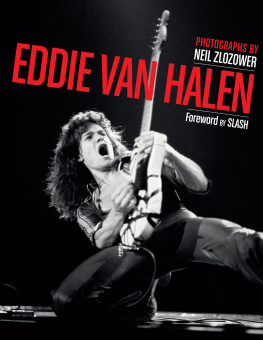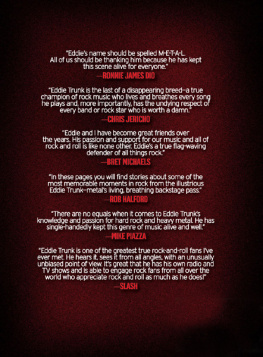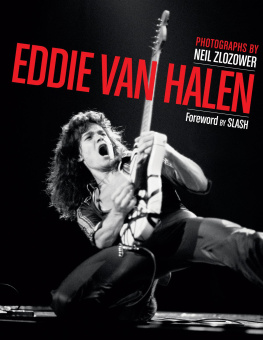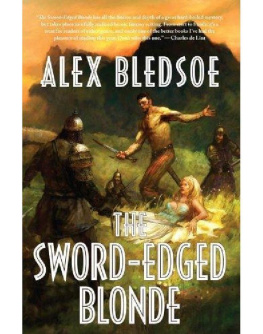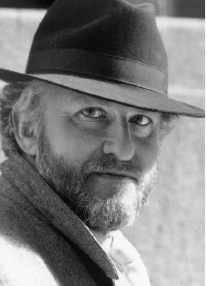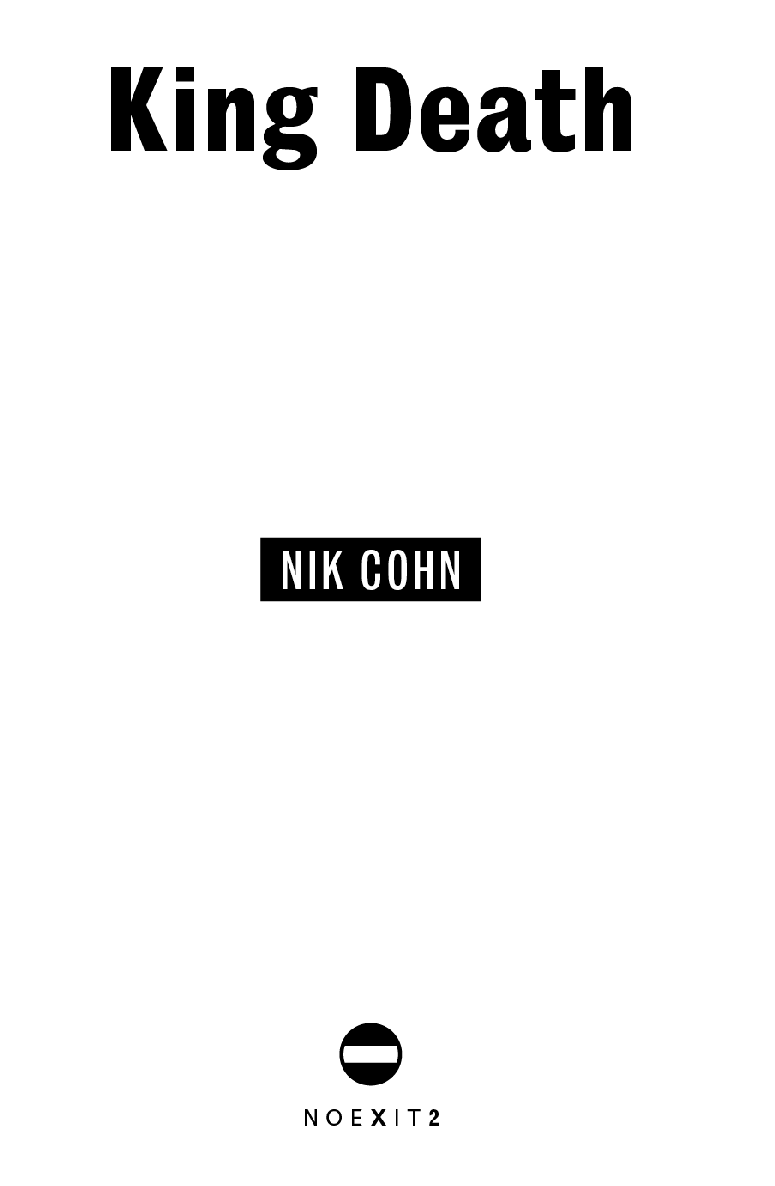ABOUT THE AUTHOR
Nik Cohn is the original rock & roll writer. Arriving in London from Northern Ireland in 1964, aged 18, he covered the Swinging Sixties for The Observer, The Sunday Times, Playboy, Queen and the New York Times and he published the classic rock history Awopbopaloobop Alopbamboom in 1968. Later he moved to America and wrote Tribal Rites of the Saturday Night that inspired Saturday Night Fever . His other books include Rock Dreams (with Guy Peellaert), Arfur Teenage Pinball Queen (which helped inspire the Whos Tommy) and Yes We Have No .
Copyright
This ebook edition published in 2016
by No Exit Press
an imprint of Oldcastle Books
PO Box 394,
Harpenden, AL5 1XJ, UK
noexit.co.uk
All rights reserved
Nik Cohn, 1975
The right of Nic Cohn to be identified as the author of this work has been asserted
in accordance with Section 77 of the Copyright, Designs and Patents Act 1988
This ebook is copyright material and must not be copied, reproduced,
transferred, distributed, leased, licensed or publicly performed or used in any
way except as specifically permitted in writing by the publishers, as allowed under
the terms and conditions under which it was purchased or as strictly permitted
by applicable copyright law. Any unauthorised distribution or use of this text may
be a direct infringement of the authors and publishers rights, and those
responsible may be liable in law accordingly.
This is a work of fiction. Names, characters, places, and incidents either
are the product of the authors imagination or are used fictitiously, and any
resemblance to actual persons, living or dead, businesses, companies, events
or locales is entirely coincidental.
ISBN
978-1-84344-897-6 (print double edition)
978-1-84344-979-9 (epub)
978-1-84344-980-5 (kindle)
978-1-84344-981-2 (pdf)
For further information please visit crimetime.co.uk / @noexitpress
Get FREE crime books and other great offers from No Exit Press
Ebook by Avocet Typeset, Somerton, Somerset TA11 6RT
PRAISE FOR NIK COHN
A thrilling, inspirational read Guardian
Set the template for a whole new style of rock journalism, informed, irreverent, passionate and polemical Choice Magazine
The book to read if you want to get some idea of the original primal energy of pop music. Loads of unfounded, biased assertions that almost always turn out to be right. Absolutely essential Jarvis Cocker, Guardian
Cohn was the first writer authentically to capture the raucous vitality of pop music Sunday Telegraph
TO ELVIS AND JESSE,
THE PRESLEY TWINS; AND
FRANNY MAE LIPTON
One day, towards the end of a long dry summer, Seaton arrived in Tupelo and stopped at the Playtime Inn. It was a stifling afternoon, the town lay in a stupor and, for lack of anything better, he stood at his bedroom window, half-hidden behind a net curtain, looking out across the street.
From where he was stationed, he could see three shopfronts: a Chinese laundry, a pool hall, and a saloon called The Golden Slipper. Between them, they occupied perhaps a dozen yards of sidewalk. In addition, if Seaton craned his neck, he could just make out the first three letters of a gilded nameplate wil , as in wilkes & barbour (Noted Upholsterers).
Within this frame, the action was severely limited. An antique Chevrolet was parked outside the pool hall, a mulatto woman was scrubbing the steps of the saloon and a mongrel lay panting beneath a lamp post. In the doorway of the Chinese laundry, there stood a man in a heavy black overcoat, black gloves and a black slouch hat, and between his legs there was a small black suitcase.
Seaton watched, and time dragged by very slowly. He felt sticky and unclean and, from time to time, to ease his boredom, he would turn away and flop down on his bed, or splash his face with lukewarm water, or help himself to a cigarette. He was an Englishman born and bred, and at the bottom of his suitcase, there was Wisden, the Cricketers Almanack , for 1921; three old school ties, all different; and a photograph of the Queen Mother.
So the afternoon passed. Propped up behind the glass like a tailors dummy, Seaton began to nod, and a large blue fly settled on his nose. The Chevrolet drove away, the mulatto maid finished her scrubbing, the mongrel wandered off round the corner. Finally, only the man in black remained, and even he was lost in shadow, all except for his shiny black boots, which protruded an inch into the sunlight, toecaps glinting.
Possibly Seaton drifted off into a doze, perhaps he simply ceased to register. At any rate, when a siren sounded on the corner, it took him by surprise and his head jerked, his eyes opened wide.
It was past five oclock. The sun had lost its force and his sweat had turned cold on his flesh, a sensation which made him shudder. Wincing, he shook himself and stretched and yawned, and he was just on the point of moving away when a stranger in a blue pin-striped suit emerged from the pool hall, and began to stroll down the block.
He moved with bent head and slouched shoulders, and it was not possible to make out his features. From a distance, however, he seemed roughly the same age and build as Seaton himself squat and stubby, slack-fleshed and he did not walk so much as amble, splayfooted.
As he came abreast of the laundry, he produced a cigar and paused for a moment to light it, holding it up to his nostrils, rolling it lovingly between his thumb and forefinger. Immediately, the man in the black overcoat stepped out from the doorway, hand outstretched, as if to proffer a light, and the stranger half turned to meet him, inclining his head.
At this moment, something odd occurred. The two men, as they touched, appeared to mesh. There was no noise, no semblance of a struggle, but the man in black, flowing into the strangers flesh, seemed to pass straight through him and come out on the other side, all in one smooth motion.
For an instant, as he stepped clear, his face caught the light and his eyes were seen to gleam and sparkle, like tiny mirrors refracting. Before Seaton had time to focus, however, they had dimmed again and he had turned his head. Stepping down from the sidewalk, momentarily eclipsing the wil of wilkes & barbour , he tucked his black suitcase underneath his arm and, sauntering, he disappeared off the edge of the frame.
The man in the pin-striped suit was left behind. For several seconds, he hung without moving, cigar still halfway to his lips, head still inclined towards the empty doorway, as though he were listening to something very faint and difficult, which required his utmost concentration. Seaton could hear dance music playing on a radio, saw a flutter of pink silk in the depths of The Golden Slipper. Then the stranger gave a sigh and, folding gently at the knees, he slid down on to the sidewalk, where he twitched three times and was still.
That same evening, when night fell, Seaton crossed the street to The Golden Slipper, where there were blondes in tight red dresses, slow sad country songs on the jukebox and men who drank to forget, and he sat down alone in a dark corner booth, consuming large brandies.
Once, he had been a choirboy; in all his childhood snapshots, he appeared as a perfect dimpled cherub, pink and round. But now he had reached his middle thirties and that first pure glow was dulled. His pinkness had grown mottled, his dimples had turned into embryonic potholes and, though he was not exactly fat, he sagged, like puff pastry gone wrong.
Next page
